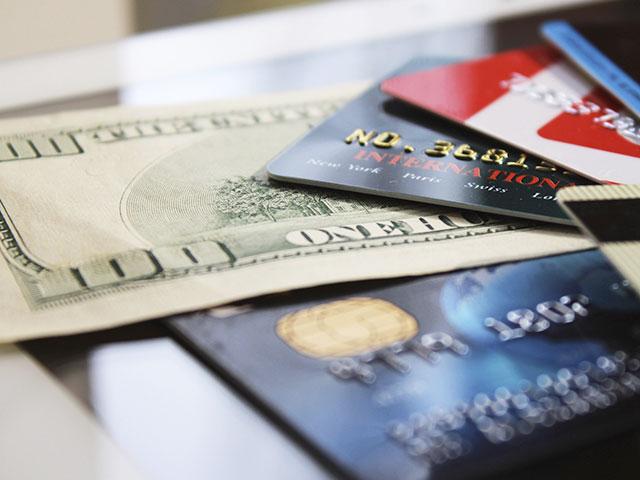Credit Card Tricks to Watch Out For

I'll admit it. I've been guilty of overusing my credit cards. For years, as I tried to pay down huge sums of debt, I lived with the false security that I could keep charging without incurring more debt, thanks to the grace period—the 25 or so days you have to pay new charges before the interest kicks in. I was shocked to learn that if you don't pay in full each month, you don't get a grace period. You're charged interest on new purchases immediately. No wonder it took me so long to pay off my cards!
The vanishing grace period is not the only money-sapping fact about that deck of cards in your wallet. Here's what you should know to make sure your credit cards are working for you, not against you.
Low ‘Teaser’ Rates
There is a reason your mailbox is always clogged with credit card offers. The competition for new customers is so fierce, credit card companies are constantly drumming up marketing tactics to land new business. The most common? Temptingly low rates—or even 0 percent interest. The companies hope you'll be so eager to get a low rate that you'll transfer the balance from an existing card to the new one—and that you won't pay off the balance. Then, when the teaser rate expires, you're stuck with a big balance at much higher interest.
How to Fight Back
Don't be blinded by teaser rates. Concentrate instead on the real rate that kicks in when the low one expires. Any benefit you receive from the teaser will be minimal at best compared with the overall cost of carrying debt on a new card.
Bait and Switch
If that teaser rate of 0 percent interest enticed you into signing up, you may have even more to worry about. Say you transfer your higher-rate balance as soon as you get your new card. You'll be shocked when your first statement arrives with a 4 percent fee charged on the balance transfer, plus 17.99 percent on the entire new balance. Where did your 0 percent go? A call to customer service reveals that your credit history and score didn't qualify for the original sweet deal. But by signing the application, you agreed to accept any substitute deal. Now you're left with a higher rate—and the balance transfer fee.
How to Fight Back
Make a copy of the entire completed application before you return it. When the card is issued, compare the terms and conditions of the account you receive with your copy. If they don't match, return the card with your regrets.
Late Fees
Take a $20, a $10, three $1s, and 64 cents and drop them in the toilet. Now flush. That's essentially what you're doing if you send in a credit card payment late. In 2007, Americans spent $18.1 billion on late and over-limit credit-card fees. Even if you think you're getting your payments in under the wire, you're probably not. More banks are setting a cutoff time, such as 11 a.m., on the payment due date. So mailing a check a few days before it's due doesn't mean it will arrive in time. Overnighting is no guarantee either. Credit card companies typically assign a different address for overnight deliveries, a fact they don't publicize. Send your payment to the wrong address, and you'll miss the deadline for sure. If the company can trick you into paying late a time or two, you'll lose your low interest rate (and damage your credit score, too).
How to Fight Back
Read your statement carefully. If the time of day and mailing address required for on-time payments is not clearly disclosed, call customer service to find out. Then beat them at their own game by making your payment the day you receive the statement instead of waiting until the due date nears.
Over-Limit Fees
A spending limit on a credit card account used to mean you could spend up to that amount only. If you tried to go over, the purchase would be denied. While embarrassing, a credit limit acted as a safety net. Don't look now, but that safety net is gone. If you charge over the limit, your issuer will gladly allow the transaction to go through—and then slap you with a fee of up to $39. And if your next payment doesn't cover the fee plus enough to get the principal balance below limit, you'll get slapped again next month. And the next.
How to Fight Back
If you are close to the limit, don't carry the card with you. Keep it at home and commit to lowering your balance.
Going Up, Up, Up
There is no limit on how high banks can raise credit card interest. Rates are limited solely to the laws of the state in which the issuer operates. Now you know why most card companies are in either South Dakota or Delaware: Neither state has caps on rates. Even if your credit card has a "fixed" rate, don't get too comfortable. Remember, you signed an agreement that gives the bank permission to change the terms. Federal law requires that you receive at least 15 days' notice of changes, however.
How to Fight Back
Pay your bill in full each month to avoid fees and interest altogether. If you do carry a balance and don't like the new terms, shop for a better deal.





